What would my life be like now if only I’d done something different as a kid? This question is one that likely runs through people’s head on sleepless nights, and it’s one that the unique narrative puzzle A Perfect Day strives to answer.
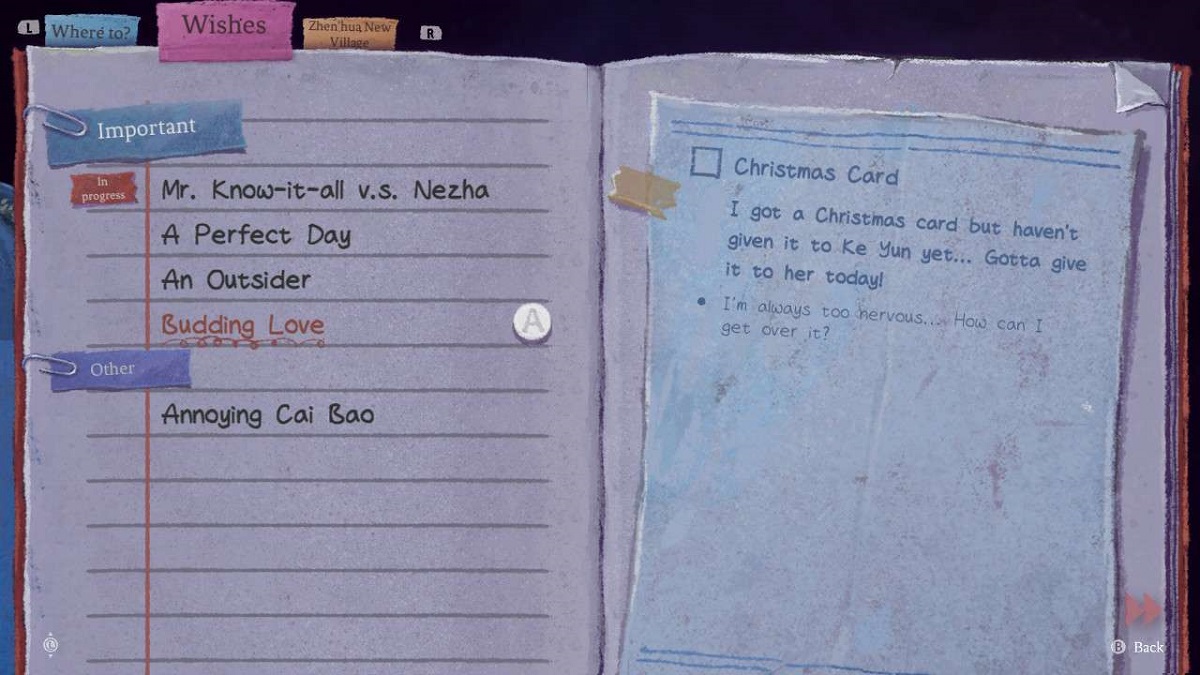
The plot of A Perfect Day revolves around elementary schoolboy Chen Liang and his desire to have the perfect day. School unexpectedly lets out early. So Cheng Liang takes the opportunity to hand Ke Yun, a girl in his class, a Christmas card. It’s the last day of 1999, so he’s way late, but he just never got the chance to beforehand. Unfortunately, things don’t go to plan, whether it’s with Ke Yun, Chen Liang’s friends, or Chen Liang’s family. Using information you gather as you experience the December 31, 1999 time loop over and over again, you have to help Chen Liang and the people around him enjoy the perfect day.
While A Perfect Day technically counts as a visual novel, it’s closer to a puzzle game than anything. You have to calculate the perfect order of doing things so that you can clear all of the wishes that Chen Liang has for the day. As well, you have to make sure you have the right items and activities in your drawer when you start the time loop. The alternative is remembering where and when you get everything. In that sense, it’s very similar to how people used to play video games back during the 90s. That was before my time. But even in the early 2000s, I was drawing maps and writing down notes to remember things.
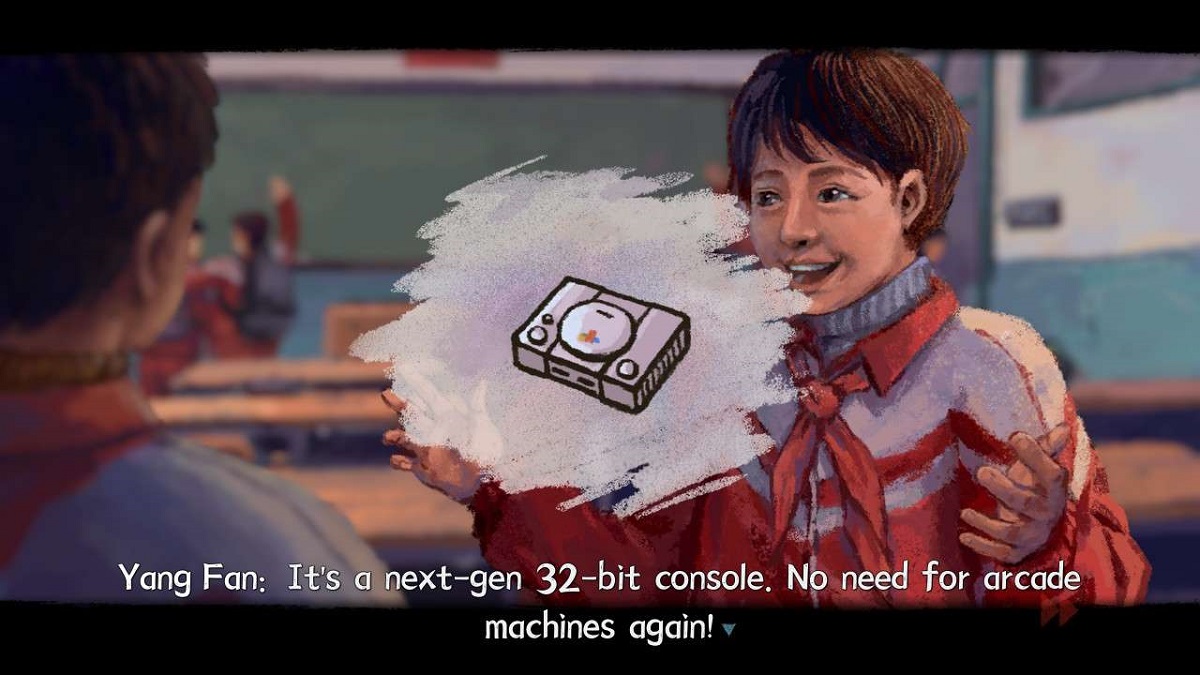
Personally, it was a lot easier to play through A Perfect Day if I thought of it as a puzzle game rather than a visual novel. The characters weren’t very interesting to me, and I didn’t really feel like it made all that much use of the setting. A draw of the game was the nostalgia factor of 90s China. However, it didn’t feel really feel that way, barring the dated video game consoles. The character writing was a little weak. I couldn’t bring myself to really care about or want to know more about anyone. Chen Liang himself is a rather pathetic protagonist in all sense of the word.
A major aspect of making sure you can have the perfect day (by the game’s standards) is increasing Chen Liang’s stats. This will allow him to do things that he normally can’t do, or last longer in situations that stressed him out in earlier loops. This boy gets nervous at the slightest thing. I find it crazy that he can barely hold a normal conversation with people without freaking out, yet he only slowly gets nervous when a literal home intruder is in his living room. Chen Liang wants to help everyone have a perfect day, according to the product description. But it’s kind of hard to believe that when he seems a little selfish. I don’t mean “selfish” in a fully negative way here. I simply mean it in the sense that a lot of Chen Liang’s wishes feel more self-serving than anything.
For example, when you go to the disco with Yang Fan, Yang Fan sees something that really upsets him. Instead of even talking to or trying to figure out Yang Fan’s issue, Chen Liang simply concludes that he should avoid going to the disco with Yang Fan at that hour. Yes, sure, Yang Fan is probably going to have an okay day in that moment, but is that really solving the issue? I suppose I’m expecting too much from an elementary schoolboy. Chen Liang barely has a personality beyond his lack of a spine though. So even disregarding his cowardice and self-absorption, he’s just not a very interesting protagonist.
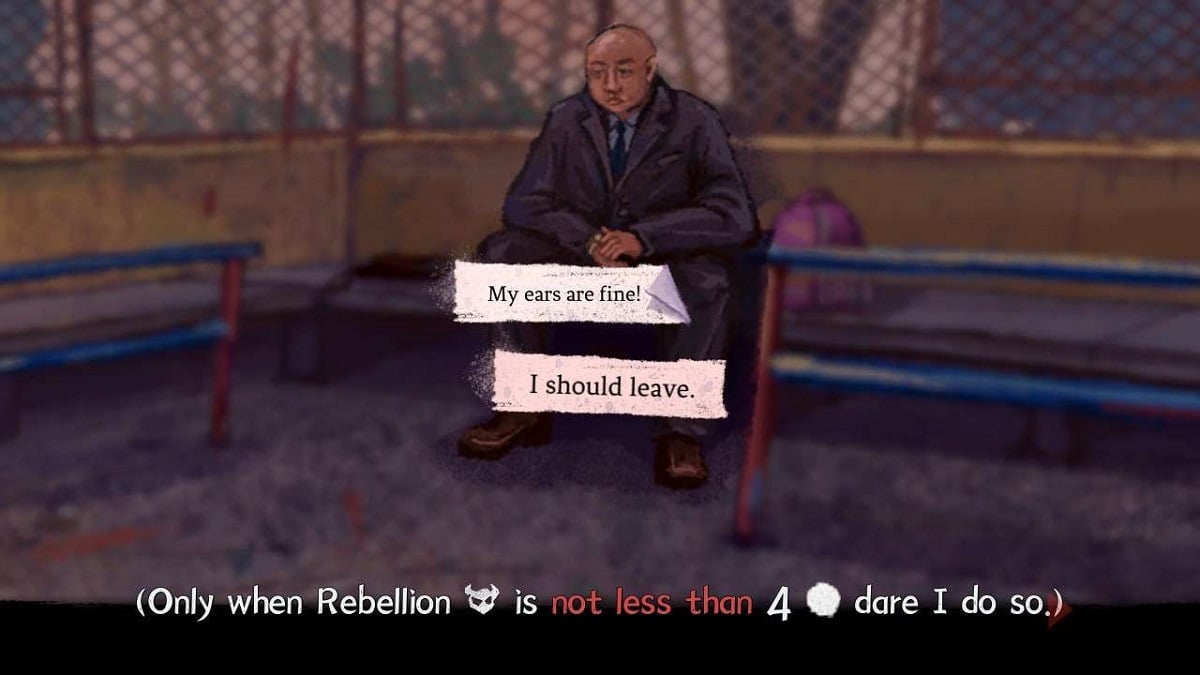
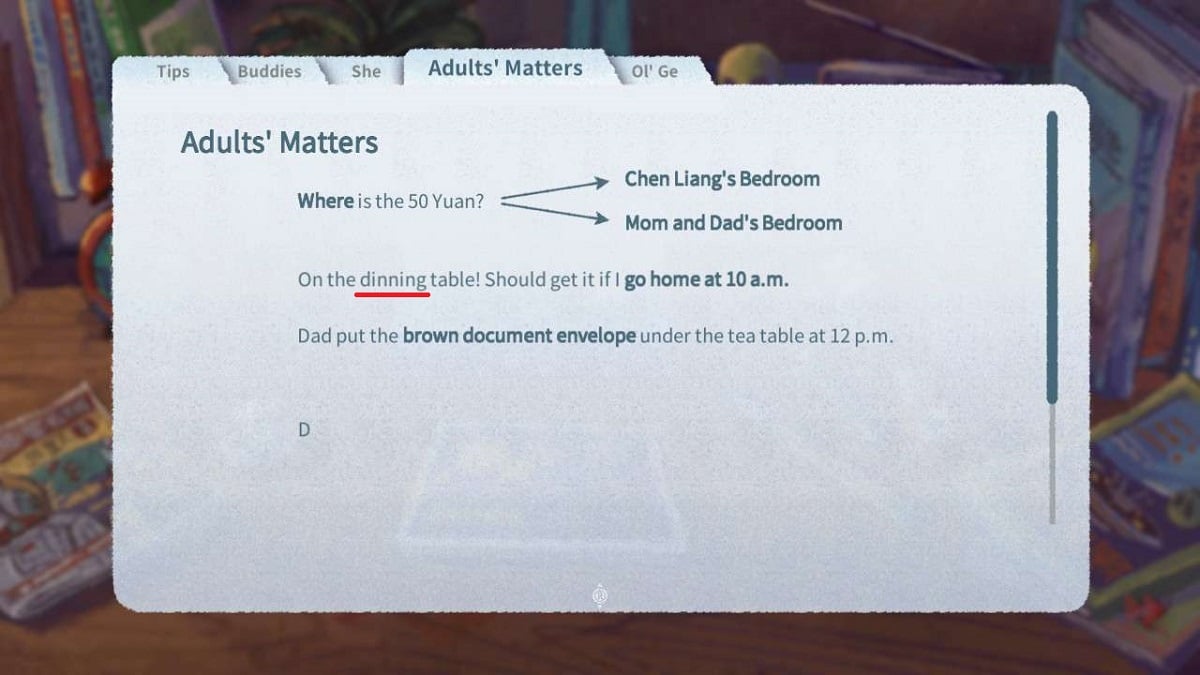
My biggest gripe with A Perfect Day is actually playing it. There are a lot of inconveniences from a gameplay standpoint. One of my issues with it is that you have to manually turn on the Fast Forward function again after every scene change. Since there are so many repeatable conversations, I wish that this was just permanently on until I turn it off myself. This gets worse the more you play, since you’ll be seeing the same events over and over again. If you’re playing in Campaign Mode, the Reasoning Time segments can take a while. The text pops up character by character and it’s impossible to skip. The UI is extremely annoying to navigate on the Switch. I found it way easier to just tap at things with my hands. The translation, too, is awkward. If you can read Chinese, I highly recommend playing the game in it.
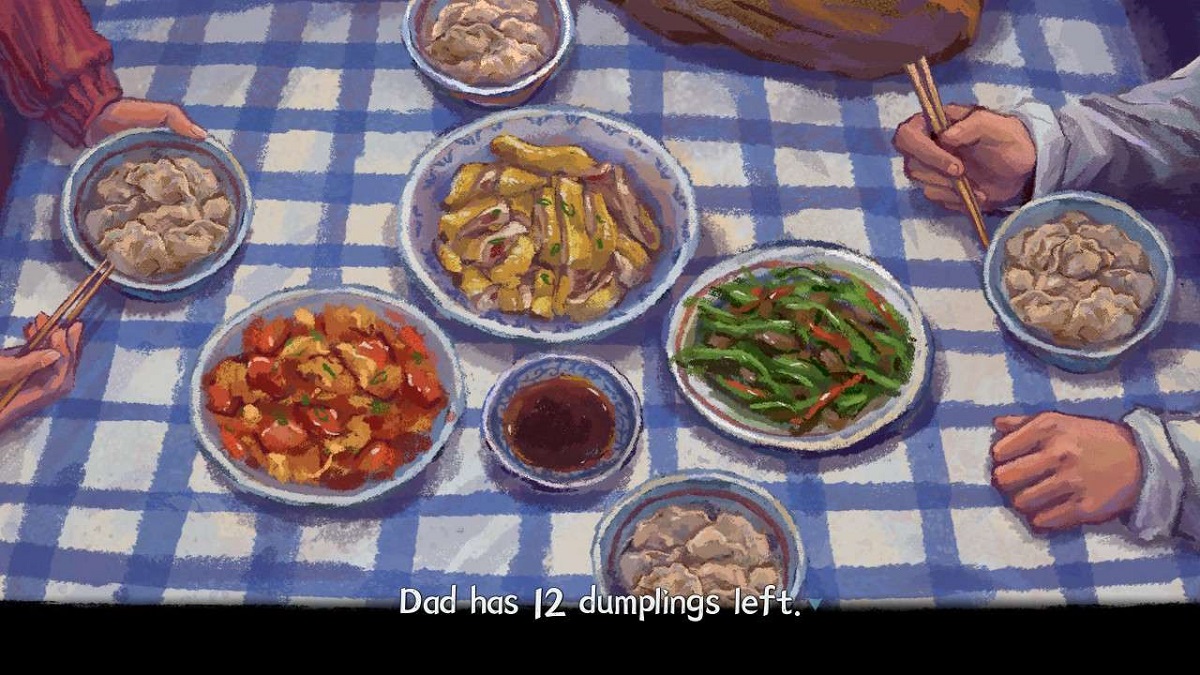
The aspect of A Perfect Day that made me the most irritated is in how the game forces you to manually perform certain tasks. In the early years of the PS3, my friends and I rented an action horror game that I no longer remember the title of. One of the first things the game wanted you to do was manually click the R3 button to blink. If you didn’t blink enough, your vision would get blurry. In the beginning, my friends and I thought it was a fun way of immersing the player in the game. But after a few blinks, we started to get annoyed. We’ve got places to be! Who in the world wants to simulate the act of blinking?
Well, A Perfect Day doesn’t go quite that far. However, it wants you to manually do things like click through the channels, eat (one bite at a time), and set up the Gamicom console. It doesn’t sound so bad when I describe it like this. But it starts to get more and more annoying the more and more you have to do it. This is a general theme of the game. I feel like this part of the game would be more enjoyable to someone who legitimately wants to take it slow, or who wants to fully experience life as a Chinese elementary schoolboy at the turn of the century. Unfortunately, I’m not in either camp.
While A Perfect Day was not exactly a fun puzzle game, nor was it an interesting visual novel, it was very aesthetically pleasing. Part of why I wanted to play this game was due to its art style. It reminded me of the illustrations for Robert Munsch books. That is, until I actually looked up Robert Munsch books for this review, and it looks nothing like the game. In any case, the art for the game is stunning, which unfortunately was the only positive aspect for me.
A Perfect Day is readily available on the PS4, PS5, Xbox Series X, Xbox One, Nintendo Switch, and Windows PC.